
Oral health is one of the most important aspects of our lives. It has a direct impact on our physical appearance, which is closely linked to our self-confidence and self-esteem. We are also more likely to be able to achieve success in life if we have good oral health. However, many people do not realize that there is also an indirect connection between good oral health and sleep quality. Poor oral health can lead to many different problems, including bad breath, tooth decay, and other issues that can affect the quality of your sleep. This article will explore how poor oral health can affect sleep quality and how you can improve your oral health to improve your sleep quality.
What is quality sleep

Quality sleep is a state of deep restorative sleep. It is characterized by long periods of uninterrupted sleep and the absence of any disruptions that would lead to wakefulness. The quality of your sleep has a direct impact on your physical and mental health, as well as your overall well-being. When you have quality sleep, your body releases hormones that help maintain muscle tone and repair cells. This allows you to recover from the day’s stresses faster, which will also improve your mood and focus. When we talk about sleep quality, we are referring to the physiological, mental, and emotional aspects of sleep that make up your overall experience of sleep.
Benefits of quality sleep
Quality sleep is crucial to maintaining a healthy lifestyle. It gives us the energy we need to perform at our best, and it allows us to maintain a positive mood throughout the day. Quality sleep has many benefits and helping you get the sleep you need has never been easier.
- Boosts immune system function
- Reduces stress and anxiety
- Improves memory, learning, and problem-solving skills
- Increases creativity and productivity
Poor sleep can affect oral health

Sleep and oral health are closely linked. Poor sleep can affect your oral health, and poor oral health can affect your sleep. When you are not getting enough rest, it can have a negative impact on your oral health as well.
Bruxism

Bruxism is a condition in which you grind your teeth, and it can have a serious impact on your sleep quality. The severity of bruxism symptoms can vary from mild to severe and can result in headaches, neck pain, tooth damage, and tooth loss. Bruxism is usually caused by stress or anxiety. It can also be brought on by certain foods or drinks that are consumed before bedtime, such as caffeine or alcohol. It has been shown that people who suffer from bruxism have a higher rate of sleep disturbances than those without the condition. Furthermore, it has been found that those suffering from bruxism tend to wake up more often during their sleep cycle, which makes it harder for them to get into deeper levels of sleep. They can help determine if you need a mouth guard or some other type of device to stop the grinding of your teeth during the night.
Sleep apnea

Sleep apnea is a condition where the airway becomes blocked while sleeping, causing a reduction in oxygen. This can happen numerous times throughout the night and lead to poor sleep. People with sleep apnea often experience fatigue and excessive daytime sleepiness due to the lack of oxygen. In addition, they may have trouble concentrating, remembering things, and performing simple tasks. There are two types of sleep apnea: obstructive and central. Obstructive sleep apnea occurs when the muscles in the back of the throat relax and block the airway during sleep. Central sleep apnea occurs when breathing is interrupted due to a lack of signals from the brain to breathe. Sleep apnea is often associated with other conditions such as obesity or diabetes, but it can also be caused by oral health issues like tooth decay or gum disease.
Temporomandibular joint (TMJ) disorders

Temporomandibular joint (TMJ) disorders are the most common cause of jaw pain, and they can also lead to insomnia.
The temporomandibular joint is the hinge-like connection between your lower jawbone and your skull. TMJ disorders can cause excessive wear on this joint, resulting in problems with chewing, speaking, or opening your mouth wide.
TMJ disorders are often linked to the way you sleep: if you sleep on your back with your mouth open, it can cause clenching of the jaw muscles and grinding of teeth—both of which can lead to TMJ problems and sleep issues. For some people with TMJ disorders, sleeping on their side may be better for them because it keeps their mouths closed more tightly. It’s important for people with TMJ disorders or other types of oral pain to receive treatment from a dentist who can help them identify the underlying causes and develop an appropriate treatment plan.
Gingivitis
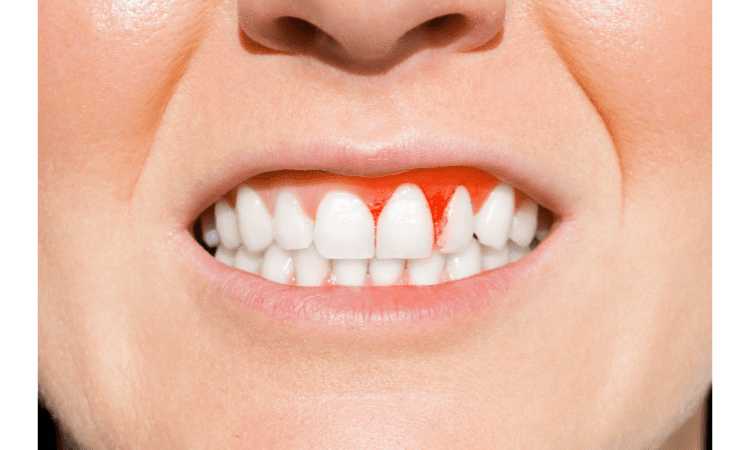
Gingivitis is an oral infection caused by bacteria known as plaque. While it is not a serious disease, it can lead to more severe health issues in the long run.
The symptoms of gingivitis include swollen or red gums and bleeding gums when you brush your teeth. If you have been experiencing any of these symptoms for some time, it is important that you see a dentist immediately. Gingivitis can cause sleep apnea, which can make it difficult for you to fall asleep and stay asleep throughout the night. Sleep apnea occurs when your airways are blocked by excess tissue in your throat, which causes snoring and breathing problems during sleep. The more severe your case of sleep apnea becomes, the harder it will be for you to fall asleep at night and stay asleep through the night. This is caused by plaque buildup around the teeth. If left untreated, gingivitis can lead to periodontitis which can cause tooth loss.
Mouth breathing

Mouth breathing is a common issue among people with gum disease, and it’s also a problem for people who have dry mouths. The dryness of the air in your mouth can cause damage to the tissues in your throat, which can lead to inflammation and swelling. This swelling can block your airways and make it harder for you to breathe through your nose.
Because of this, mouth breathers often experience symptoms like snoring and sleep apnea (when a person stops breathing periodically during sleep). Mouth breathing also makes it more difficult for you to get restful sleep—because you’re not getting enough oxygen, your body has trouble relaxing at night. A dry mouth can lead to uncomfortable sensations at night like parched lips or sore throat; if it’s bad enough, it could even cause tooth decay.
Some Common Questions Regarding Sleeping and Oral Health
1. How can poor oral health affect my sleep quality?
Poor oral health can affect your quality of sleep in a number of ways, including:
Reduced salivary flow—the more saliva you produce, the less likely it is that food particles will stay in your mouth and cause problems like tooth decay or gum disease.
Increased snoring—if your mouth is dry and you don’t have enough saliva to help keep your throat lubricated, you’re more likely to snore when sleeping.
Mouth breathing—in case, you’re not producing enough saliva, which helps keep the airways moist and clear, then breathing through the mouth becomes more common during sleep. This can lead to nasal congestion and dryness in the nose and throat (which can lead to snoring).
2. What are some common oral health issues that can cause sleep problems?

If you have trouble sleeping, it might be time to consider your oral health. Here are some common oral health issues that can cause sleep problems:
– Tooth decay (tooth decay)
– Gum disease (periodontal disease)
– Dry mouth (xerostomia)
– Mouth breathing
3. Can untreated cavities or gum disease affect my sleep?
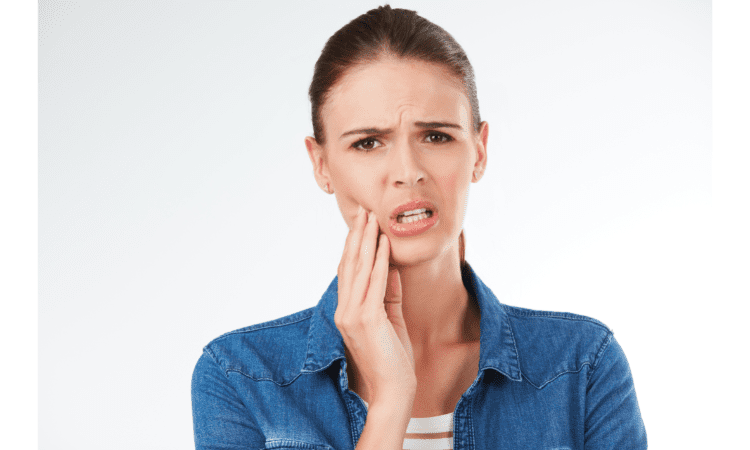
Yes! Untreated cavities or gum disease can affect your sleep.
During the night, your mouth produces more saliva than during the day. This excess saliva can cause cavities to grow faster and tooth decay to progress. If you are not taking care of your oral health, you may be at risk for developing periodontal disease and dental caries, which could lead to sleep issues.
If you have untreated cavities or gum disease, you may experience pain when swallowing or breathing through your nose. This can disrupt your ability to fall asleep and stay asleep throughout the night. Patients with untreated periodontal disease also report experiencing frequent headaches and jaw pain, which can interfere with their ability to rest comfortably at night.
4. How does snoring relate to oral health, and can it be treated?

Snoring can be a symptom of other, more serious health conditions. If you or your partner snores, it’s important to talk to your doctor.
While most people assume that snoring is just a sign of poor sleep, it can also be a sign of more serious health conditions. Snoring is often caused by obstructive sleep apnea (OSA), which is when you stop breathing for brief periods of time during sleep. This can lead to heart disease and high blood pressure, as well as other complications like diabetes and depression.
If you or your partner snore loudly, waking up gasping for air, or if you wake up frequently at night and feel tired during the day, it’s important to talk with your doctor about what may be causing this issue and how it can be treated.
5. Can wearing a mouthguard or a night guard improve my sleep quality?
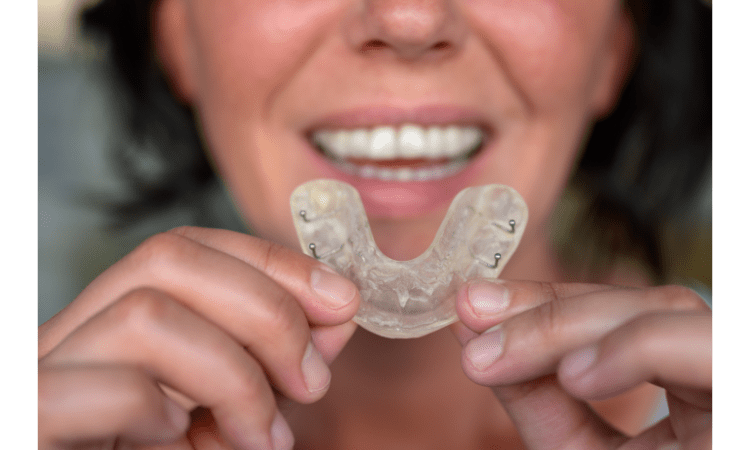
Wearing a mouthguard or night guard can improve your sleep quality.
You may be wondering: what is the connection between oral health and quality rest? The answer is that there’s a lot of overlap between the two.
When you have a mouth full of cavities, sores, and cracks, it’s hard to get comfortable when you’re sleeping. You might wake up with an itchy tongue or swollen gums, which means that you’re not getting the rest that you need. Additionally, these symptoms can interfere with your ability to fall asleep in the first place—they’ll keep you up at night!
A mouthguard or night guard can help with both of these issues by protecting your teeth from further damage and reducing pain when you’re sleeping.
6. What is sleep apnea, and how does it relate to oral health?
Sleep apnea is a disorder in which breathing is interrupted during sleep. It can cause excessive daytime sleepiness and fatigue, as well as a host of other health problems.
There are two kinds of sleep apnea: central and obstructive. Central sleep apnea occurs when your brain doesn’t send the right signals to your body, so you don’t breathe deeply enough to get enough oxygen in your blood. Obstructive sleep apnea happens when something blocks your airway, such as excess tissue in your throat or mouth.
Oral health plays a role in both types of sleep apnea because it’s important for keeping the airways clear and healthy. In fact, experts say that if you have untreated gum disease, you’re at high risk for developing obstructive sleep apnea—but even if you have no symptoms yet, regular dental checkups can help identify any potential problems before they become serious enough to cause issues with breathing while sleeping.
7. Can orthodontic treatment or jaw alignment procedures improve sleep quality?
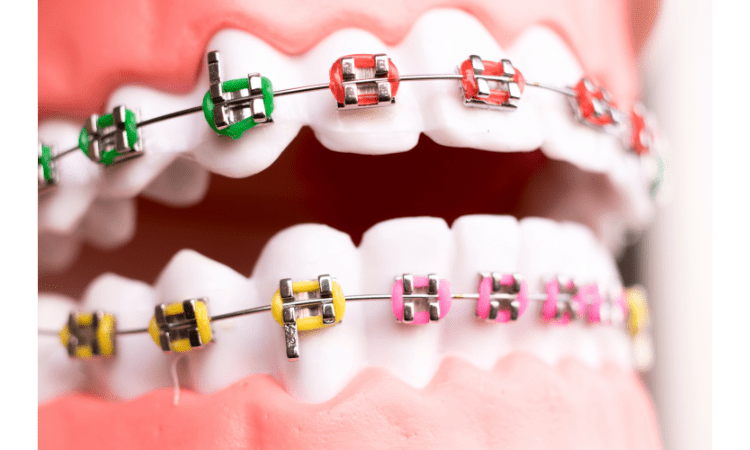
One of the most common sleep-related complaints is of snoring. Snoring can be caused by a range of factors, but one cause many people overlook is poor oral health.
When it comes to oral health, your jaw alignment is an important factor in how you sleep and how you feel during the day. If your jaw is not aligned properly, it can cause muscle spasms that can lead to snoring or other sleep problems like sleep apnea.
Orthodontic treatment or jaw alignment procedures can improve sleep quality by correcting misaligned jaws and addressing any other problems that may be causing your discomfort during the night. Your dentist will work with you to determine if treatment is right for you and help you make an informed decision about whether or not it would benefit your overall health.
8. How does maintaining good oral hygiene habits impact sleep quality?
You might not think of your oral health as having an impact on your sleep, but it actually does.
The mouth is the gateway to the rest of the body, and when it’s unhealthy, you feel it in other parts of your life. Here are some ways that poor oral hygiene habits can hurt your sleep quality:
-Bad breath makes falling asleep harder because you can’t stop worrying about what others will think of you.
-Sensitive teeth make sensitive people even more sensitive—and that can keep you awake at night.
-Gum disease causes chronic inflammation throughout the body, which can make it difficult to get comfortable enough to fall asleep.
9. What foods or supplements can promote oral health and better sleep?
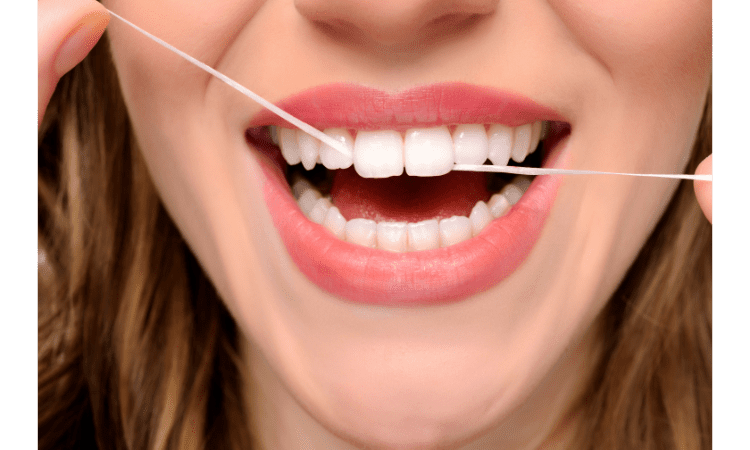
Oral health is an important part of overall health and well-being. But did you know that poor oral health can lead to poor sleep?
The connection between oral health and sleep is a two-way street: not only does poor oral health make it harder to get quality rest, but lack of sleep can also cause problems with your teeth and gums.
To maintain good oral health, it’s important to brush and floss regularly, limit sugary foods and drinks (especially before bedtime), schedule regular dental visits, drink plenty of water, and practice good stress management techniques.
10. Are there any lifestyle changes I can make to improve my oral health and sleep quality?
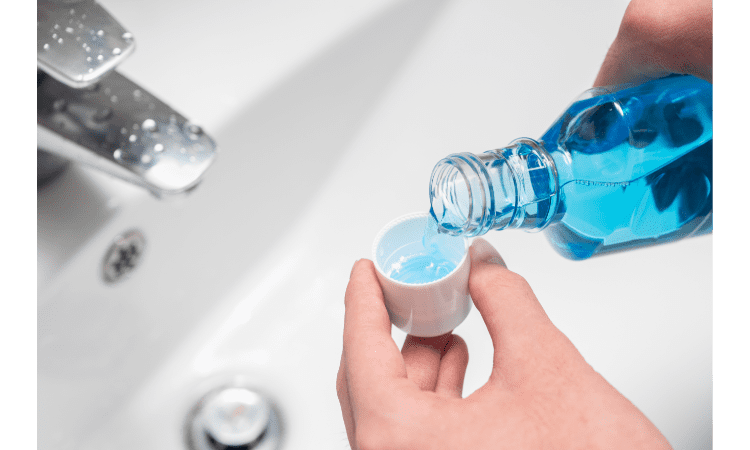
Yes, there are a number of lifestyle changes you can make to improve your oral health and sleep quality.
The first is to make sure you brush your teeth, floss, and use mouthwash before bed. This will help prevent the build-up of plaque and bacteria in your mouth and reduce the risk of gum disease. It’ll also keep your breath fresh, which is important for getting a good night’s rest.
The second thing you can do is try using an electric toothbrush instead of a manual one. The vibrations from an electric toothbrush can actually help promote better circulation in your gums, which will help them fight off infection more effectively.
Finally, if you’re having trouble falling asleep at night or staying asleep throughout the night, find a comfortable position that helps you feel relaxed but not too relaxed (i.e., lying on your back). This might be difficult at first because our bodies are designed to fall asleep when we’re flat on our backs—but it might just be worth trying it out!
Sleeping for good oral health
Sleep is one of the most important aspects of our lives. Not only does it help us feel rested and refreshed, but it can also improve our mood and make us more productive. However, there are many things that can affect your sleep quality—especially oral health.
When you have bad breath or other oral health issues, it can be difficult to fall asleep and stay asleep. The good news is that there are many things you can do to improve your sleep quality while also improving your oral health.
One of the easiest ways to improve both is by brushing your teeth before bedtime. Brushing your teeth before bed will help reduce plaque build-up on your teeth, which can cause tooth decay and bad breath. It’ll also help prevent dry mouth—which is caused by dehydration—and keep bacteria from forming in your mouth while you sleep.
Another way is by using dental floss before bedtime. Flossing at night helps remove food debris from between the teeth and gums so that bacteria cannot spread throughout the mouth during sleep time; this reduces plaque formation around teeth over time as well as bad breath.
Conclusion
Oral health is an important factor in your overall health. This research has shown that there is a strong relationship between oral health and sleep quality. People with poor oral hygiene tend to experience more problems falling asleep and staying asleep, as well as waking up feeling unrefreshed. It’s important to stay on top of your oral hygiene routine so you can get the most out of your sleep every night. Our findings indicate that the effects of oral health on sleep quality are significant, which means it’s important for people to pay attention to their teeth and gums.











